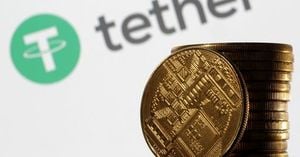DHL Group (formerly Deutsche Post) is facing increased scrutiny due to a price dispute currently unfolding in a court case initiated by competitor DVS. The tensions escalated on March 21, 2025, as DVS's CEO, Thomas Schweppe, publicly urged the company’s supervisory board to take action against alleged legal violations by DHL's management, which could jeopardize the integrity of the entire organization.
This legal battle, ongoing since 2021 in the Düsseldorf Regional Court, stems from accusations that Deutsche Post engaged in price dumping between 2012 and 2019. DVS contends that the company offered postal services for lower rates than legally permissible under regulations governing dominant companies, resulting in substantial financial losses for its own operations—estimated at around €1 billion. In his letter, Schweppe reiterated the importance of regulatory compliance, stating, “Management and the Supervisory Board should particularly be concerned with preventing willful and systematic legal violations by senior employees.”
In light of these allegations, DVS is committed to pursuing the legal action through all necessary stages of the judiciary system to ensure better compliance in the future. Meanwhile, DHL Group’s official spokesperson confirmed the ongoing court case but refrained from commenting directly on Schweppe's letter. The spokesperson asserted that DHL maintains a fundamentally different legal perspective and intends to robustly defend its position in court, emphasizing, “The matter has been known for some time and there are no new developments. The relevant proceedings are currently still ongoing in court.”
As a result of this contentious atmosphere, DHL’s stock price took a hit on the same day, falling by 2.5% to €40.93 during XETRA trading. This decline in share price highlights a continuing trend of volatility for the company, which previously reached a 52-week high of €44.27 on March 6, 2025, before dropping sharply to a low of €33.03 on January 14, 2025.
In the face of these challenges, analysts have continued to weigh in on DHL’s market stability. Investment firms JP Morgan Chase & Co. and DZ BANK recently rated DHL as “Overweight” and “Buy,” respectively, indicating a generally favorable outlook despite the current legal turmoil. However, the pessimistic sentiments surrounding the logistics sector were exacerbated when competitors like FedEx reported weakening performance and slashed their fiscal forecasts.
FedEx, one of DHL's primary rivals, revealed a significant dip in its own stock price, dropping nearly 11% after reducing its sales outlook for the 2024/25 fiscal year. This poor financial forecast was attributed to a sluggish industrial climate and weak demand from corporate customers, factors that have also ignited fears that DHL could face similar challenges ahead.
Investors are now highly concerned that DHL’s business might also suffer from the broader economic climate, and some analysts speculate that the industry might be on the verge of a significant shake-up. As these dynamics unfold, DHL’s performance in the market remains under intense observation.
Since its founding in 1490, Deutsche Post has evolved into a global giant in the postal services and logistics arena, with significant growth occurring after its privatization in 2000 and subsequent expansion through strategic acquisitions. The brand is well-established, particularly after the full acquisition of DHL in 2002 and the purchase of several other logistics firms.
In terms of financial performance, DHL Group recently concluded the past quarter with revenues totaling €22.7 billion, which signifies a 6.35% increase compared to the same period the previous year, despite conflict affecting their stock valuation. Analysts expect that the earnings per share for the current year will be approximately €3.14.
The recent developments regarding DHL Group exemplify the complexity of the logistics sector, where competition is fierce, and external economic uncertainties loom large. The ongoing legal dispute with DVS adds another layer to the challenges faced by the company as they navigate the fast-changing marketplace.
Investors and analysts alike are left to ponder what the future holds for DHL as they adapt to these pressures and work to stabilize their operations while still considering the broader ramifications of shifting market dynamics.







